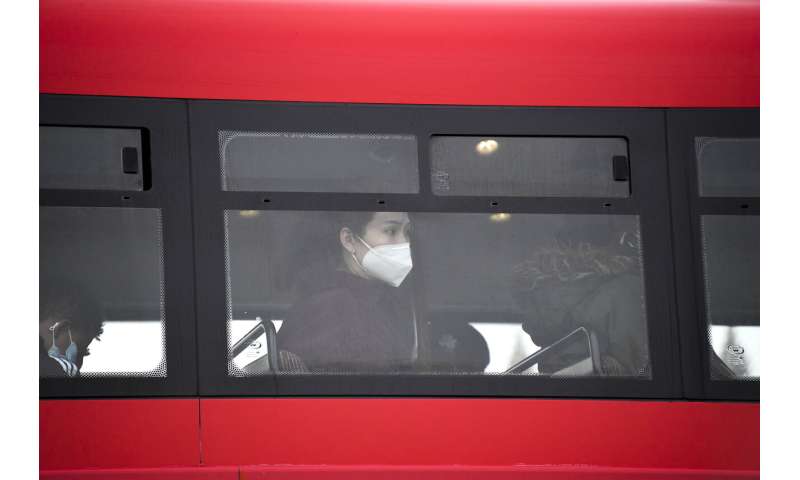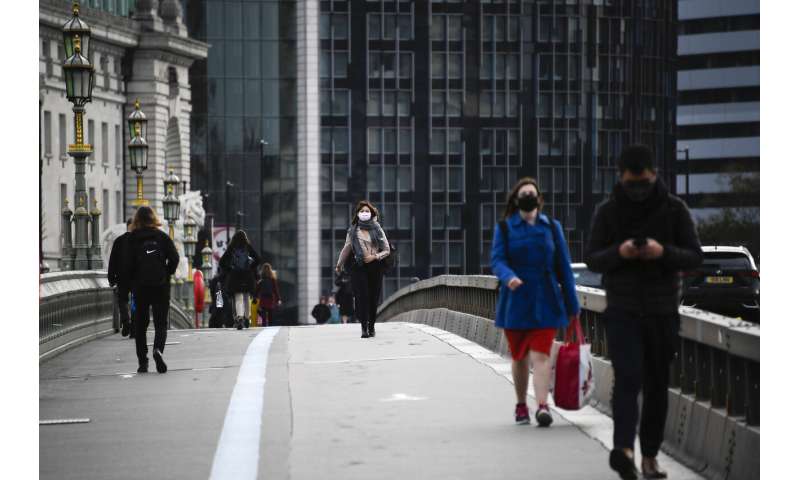
The Scottish government ordered pubs in Scotland’s two biggest cities to close and restricted food and drink business in the rest of the country as Britain seeks to control a surge in coronavirus cases. The U.K. government is mulling whether to follow suit and tighten restrictions for England.
Like other European countries, Britain has seen a second wave of coronavirus infections since pubs and restaurants reopened, children went back to school and students returned to university.
Most of the U.K. is under national restrictions on socializing, including a 10 p.m. curfew for bars and restaurants, and groups limited to six, with areas of high infection facing stricter local measures.
Scotland went even further on Wednesday, saying pubs, cafes and restaurants can only open between 6 a.m. and 6 p.m. to sell food and non-alcoholic drinks. Drinking alcohol is only allowed outdoors.
Five areas with high infection rates, including the biggest cities of Glasgow and Edinburgh, face further measures including a takeaway-only rule for bars and a recommendation to avoid public transport.
Sturgeon said the measures were “a short, sharp action” and will last for 16 days starting Friday.
“Without them, there is a risk the virus will be out of control by the end of this month,” she said in the Scottish Parliament.
Prime Minister Boris Johnson’s U.K. government is also considering whether to impose new restrictions. But he’s also facing a backlash from many lawmakers who say measures such as the 10 p.m. bar curfew are hurting businesses without reducing infections.

“This curfew has led to vast numbers of people being asked to leave pubs at 10 p.m. and pour onto the streets, many of whom then find their way to the nearest shop, buying cans and bottles to go back to gather in someone’s home,” Conservative lawmaker Matt Vickers said.
Pub chain Greene King said Wednesday that it planned to close dozens of bars across the country, blaming the “continued tightening of trading restrictions.”
Controlling a rising case count is being hindered by persistent problems with Britain’s test-and-trace program that seeks to find the contacts of infected people and get them to isolate.
Last week, the government announced that nearly 16,000 new coronavirus infections had gone unreported as a result of a technical glitch, leading to delays in tracking down contacts.
This week Swiss pharmaceutical firm Roche said problems at a U.K. warehouse are delaying shipments of testing products to clinics and hospitals, triggering concerns that COVID-19 testing may be further disrupted as infection rates rise across Britain.
Roche said the problem arose after it moved to a new automatic warehouse in September.
In a letter, it advised customers to “prioritize essential services only.”

The company said that it was “prioritizing the dispatch of COVID-19 PCR and antibody tests and doing everything we can to ensure there is no impact on the supply of these” to the National Health Service.
The glitch affects materials needed to conduct blood tests and screening for diseases including diabetes and cancer. Roche said it could take two weeks to fix the problem.
British doctors have already raised concerns about the number of procedures, tests and screening programs that were put on hold as the health service focused on battling COVID-19 earlier this year.
While normal service has begun to resume, there is still a backlog, and long waiting lists for non-emergency operations.
Britain, has the highest virus death toll in Europe at over 42,500. A total of 3,145 coronavirus patients were in U.K. hospitals on Tuesday, up from 2,390 a week earlier. A further 70 deaths of people with COVID-19 were recorded Wednesday, compared to 41 a week earlier.
Source: Read Full Article
